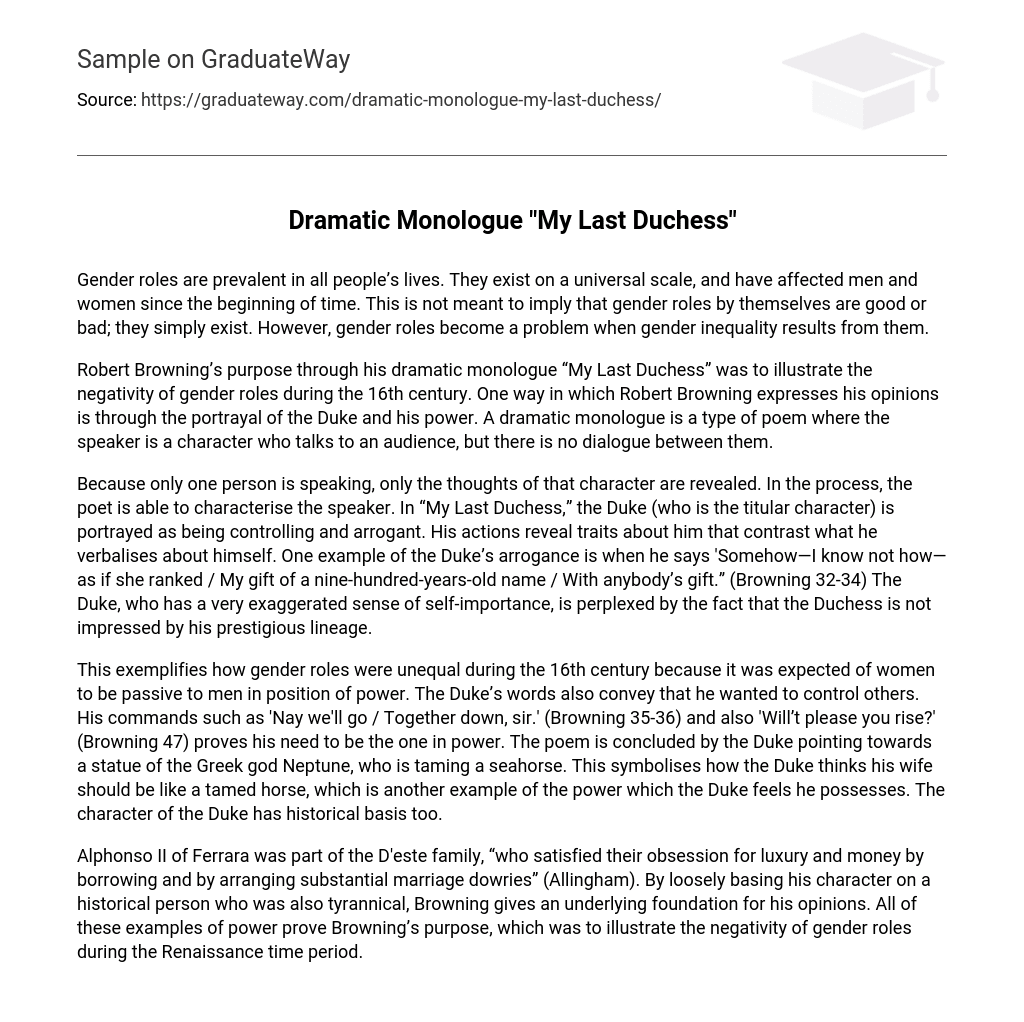Gender roles are prevalent in all people’s lives. They exist on a universal scale, and have affected men and women since the beginning of time. This is not meant to imply that gender roles by themselves are good or bad; they simply exist. However, gender roles become a problem when gender inequality results from them.
Robert Browning’s purpose through his dramatic monologue “My Last Duchess” was to illustrate the negativity of gender roles during the 16th century. One way in which Robert Browning expresses his opinions is through the portrayal of the Duke and his power. A dramatic monologue is a type of poem where the speaker is a character who talks to an audience, but there is no dialogue between them.
Because only one person is speaking, only the thoughts of that character are revealed. In the process, the poet is able to characterise the speaker. In “My Last Duchess,” the Duke (who is the titular character) is portrayed as being controlling and arrogant. His actions reveal traits about him that contrast what he verbalises about himself. One example of the Duke’s arrogance is when he says ‘Somehow—I know not how—as if she ranked / My gift of a nine-hundred-years-old name / With anybody’s gift.” (Browning 32-34) The Duke, who has a very exaggerated sense of self-importance, is perplexed by the fact that the Duchess is not impressed by his prestigious lineage.
This exemplifies how gender roles were unequal during the 16th century because it was expected of women to be passive to men in position of power. The Duke’s words also convey that he wanted to control others. His commands such as ‘Nay we’ll go / Together down, sir.’ (Browning 35-36) and also ‘Will’t please you rise?’ (Browning 47) proves his need to be the one in power. The poem is concluded by the Duke pointing towards a statue of the Greek god Neptune, who is taming a seahorse. This symbolises how the Duke thinks his wife should be like a tamed horse, which is another example of the power which the Duke feels he possesses. The character of the Duke has historical basis too.
Alphonso II of Ferrara was part of the D’este family, “who satisfied their obsession for luxury and money by borrowing and by arranging substantial marriage dowries” (Allingham). By loosely basing his character on a historical person who was also tyrannical, Browning gives an underlying foundation for his opinions. All of these examples of power prove Browning’s purpose, which was to illustrate the negativity of gender roles during the Renaissance time period.





